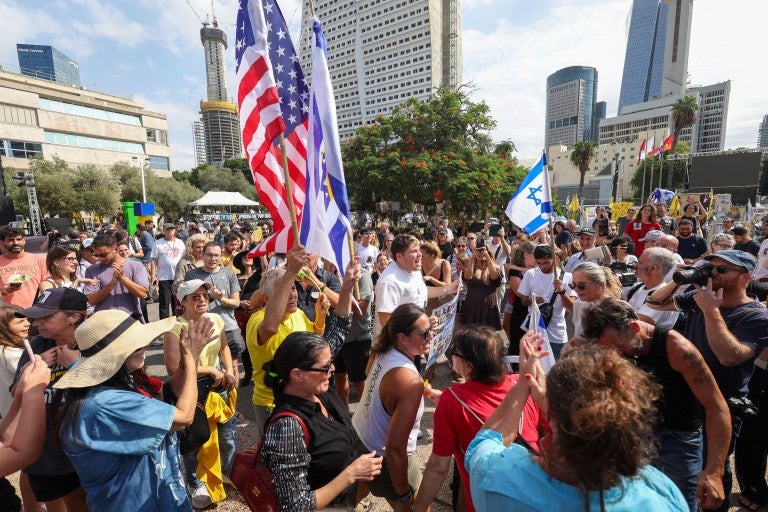April 11, 2016
The upcoming U.S. presidential election has brought back to the discussion table the political empowerment of Latino and Jewish communities. With 28 million potential votes, Latinos cannot be ignored, as was made clear in recent elections. And for the first time, a Jewish candidate is seriously vying for president.
Within this universe—diverse and complex in itself—a small but important minority exists with a huge potential to be both a catalyst and a bridge. These are Latino Jews, more than 200,000 in this country, or 3% of the 6.7 million American Jews. They are, of course, far fewer than the 55 million Latinos, but like them, these Jews arrived as immigrants from different Latin American countries for myriad reasons, and still do.
As minority groups, Latinos and Jews often join forces to create coalitions that wield substantial political expertise, influence, and reach. Beyond their historical connections and ideological affinities, both communities share interests such as support for immigration reform, opposition to hateful rhetoric and behavior, and advocacy for native or ancestral homelands in Latin America and Israel.
Until recently, little was known of Jewish Latinos, a minority within two others. Now, however, thanks to a study commissioned by AJC, we can understand the role this subgroup can play both in intergroup and public-diplomacy scenarios, and how, through the articulation of their multiple identities, they can leverage domestic, Ibero-American, and transnational connections.
The directors of the study organized ten focus groups in Miami, New York, Chicago, Houston, and Los Angeles for discussions of ethnic and cultural identities, transnational connections, and community engagement. Participants revealed how their Jewish and Latino identities impact their everyday lives and how their unique combination makes them feel at the same time part of, and alien to, both groups.
This population’s average age is 48, younger than American Jews, whose mean age is 50, and older than Latinos, whose mean age is 34. Most of the Jewish Latinos are U.S. citizens or residents, and they are particularly well educated---92% are university graduates. Interestingly, they not only preserve emotional ties with their native Latin American countries, but they also tend to define themselves in terms of their country of origin rather than as Americans.
The vast majority, 81%, comes from Mexico, Argentina, or Venezuela, countries that have undergone socioeconomic and political crises over the last five decades. Their Jewish identity stems from their ties with Israel, not from their synagogue attendance, making them very different from other American Jews. They are committed to passing down their Jewish identity and Latin American heritage to their children. Speaking Spanish and repeatedly traveling to Latin America and Israel are part of their inter-generational cultural heritage.
They are determined to have a positive impact on relations between their current, native, and ancestral home countries, even decades after departing the region. Many of them remain deeply appreciative of their countries of origin—some which are still dealing with the same serious problems that caused their own emigration—for originally allowing in their families when many others did not.
In that sense they differ from the large majority of Latinos, who at most identify themselves with their or their families’ places of origin only anecdotally. Indeed, foreign policy is not a priority for the organized Latino community, although this attitude is beginning to change.
U.S. Latino Jews present a clear example of transnationalism, the hallmark of our times, which are, characterized by migration movements worldwide. Many 21st-century societies, Europe, for example, have not yet abandoned the dangerous and destructive aspiration towards ethnic homogeneity. Through their multiple identities and beneficial attachments, Latino Jews attest to the notion of the world as a global village.
Dina Siegel Vann is Director of AJC’s Arthur and Rochelle Belfer Institute for Latino and Latin American Affairs



